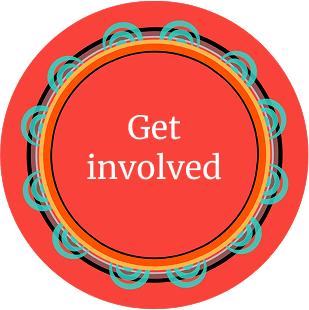Our Focus
We’re working with community, ACCOs, and partner agencies to create safer, healthier pathways for Aboriginal young people (10–17) across the Loddon Mallee. Guided by community voice - our lives, our future, our solutions—this plan turns shared priorities into practical action.
Project overview
Aboriginal Youth Project
The Aboriginal Youth Project Implementation Plan sets out coordinated actions led by LMARG members and partners in education, justice, health and employment. The plan focuses on six priority areas that, together, help young people feel safe, stay connected to culture and community, and thrive at school, at home, and at work.
Who it supports
Aboriginal young people aged 10–17
How we work
Community-led, partnership-driven, action-focused
Where we focus
Education, justice, safe places, mental health, primary health, employment
Our focus areas
Increase full-time school attendance & engagement
We’re lifting engagement at school and during key transitions (especially into secondary), making learning safer, more flexible and more culturally safe.
Key actions include:
- Showcase how Aboriginal loading is used
- Support ACCO-run homework centres
- Provide safe before/after-school spaces
- Remove material barriers with scholarships
- Raise aspirations with families, teachers and students.
Provide alternatives to youth detention
We’re advocating for responses that keep young people connected to family, community and culture - and out of detention.
Key actions include:
- Support raising the age of criminal responsibility
- Develop community-based alternatives to detention
- Build youth connector teams at ACCOs
- Complete Baroona infrastructure & model of care
- Pilot family meetings post-caution/charge
- Review offence data to guide local responses.
Provide safe places
Every young person should have safety, stability and a trusted adult to turn to.
Key actions include:
- Amplify youth voice in solutions to violence and trauma
- Introduce community-based alternatives to care (e.g., cottage homes, Housing First)
- Ensure each young person can identify a trusted adult.
Increase timely access to early mental health support
We’re improving pathways and prioritising early, culturally safe mental health care.
Key actions include:
- Advocate for expanded scope and recognition of Aboriginal Health Practitioners in mental health
- Develop priority access pathways and new models of care for child & adolescent mental health
- Increase GP placements with ACCOs.
Increase access to primary health services
Young people should easily access preventative, holistic care close to home and school.
Key actions include:
- Fund alternative primary care models (elevating AHPs and nurse practitioners)
- Increase annual 715 health checks and follow-ups in ACCOs and schools
- Promote sexual health and respectful relationships
- Introduce culturally safe supports for young women who’ve experienced sexual assault.
Increase employment opportunities
We’re creating real pathways into traineeships, apprenticeships, cadetships and meaningful jobs.
Key actions include:
- grow cadetships/internships within and beyond ACCOs
- Expand apprenticeships with industry partners
- Provide mentors (including for young people with disability)
- Invest in “work and life readiness” programs for young ACCO staff.
How progress will be tracked
We align with relevant Closing the Gap targets and regional priorities across education, justice, health and employment. Local data, youth feedback and partner reporting inform continuous improvement.

For young people & families:
Talk to your local ACCO to get involved.
For schools & services:
Partner with us to deliver actions in your area.
For supporters:
Contact us to discuss funding or program partnerships.
